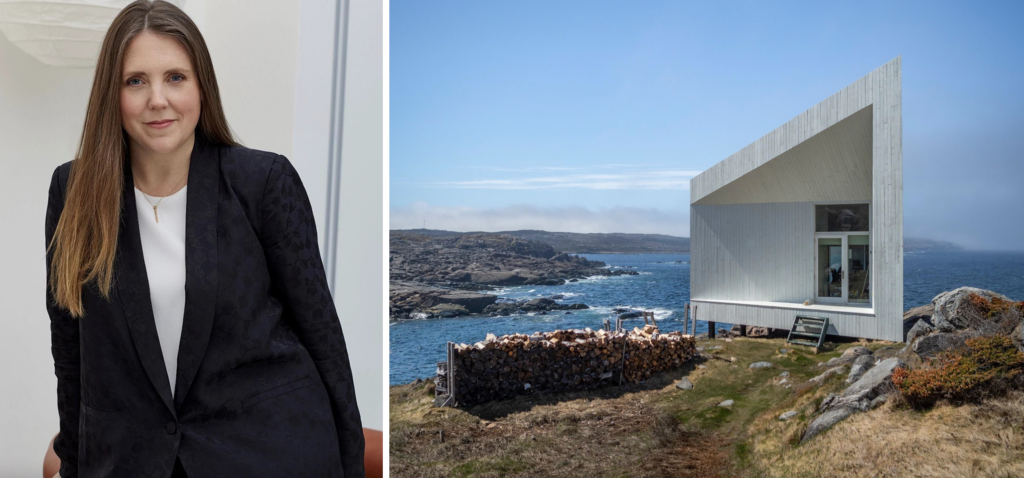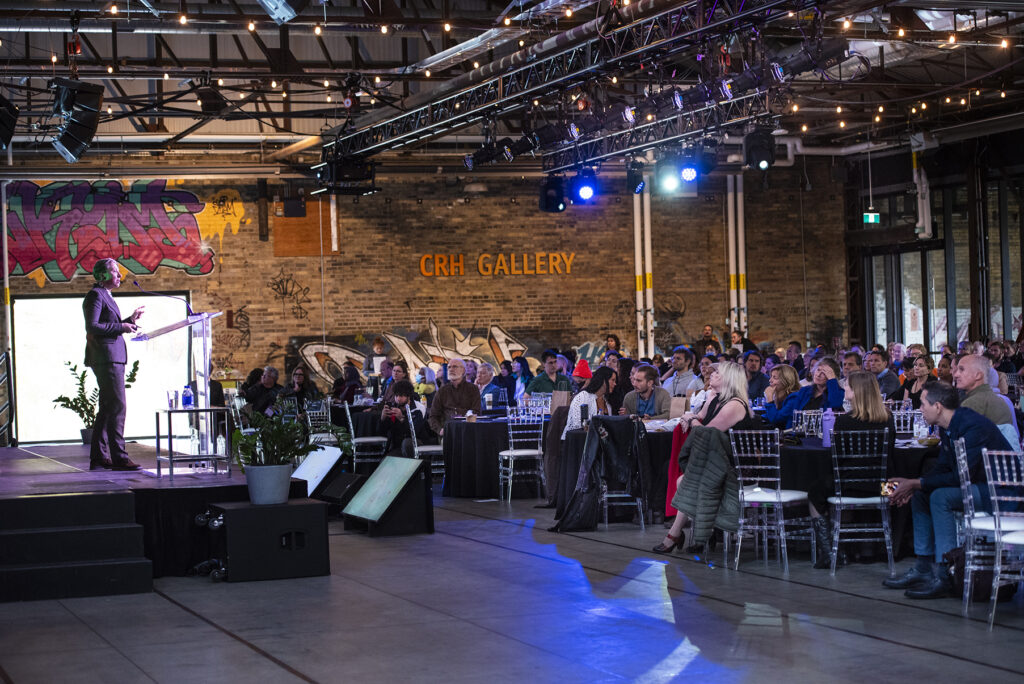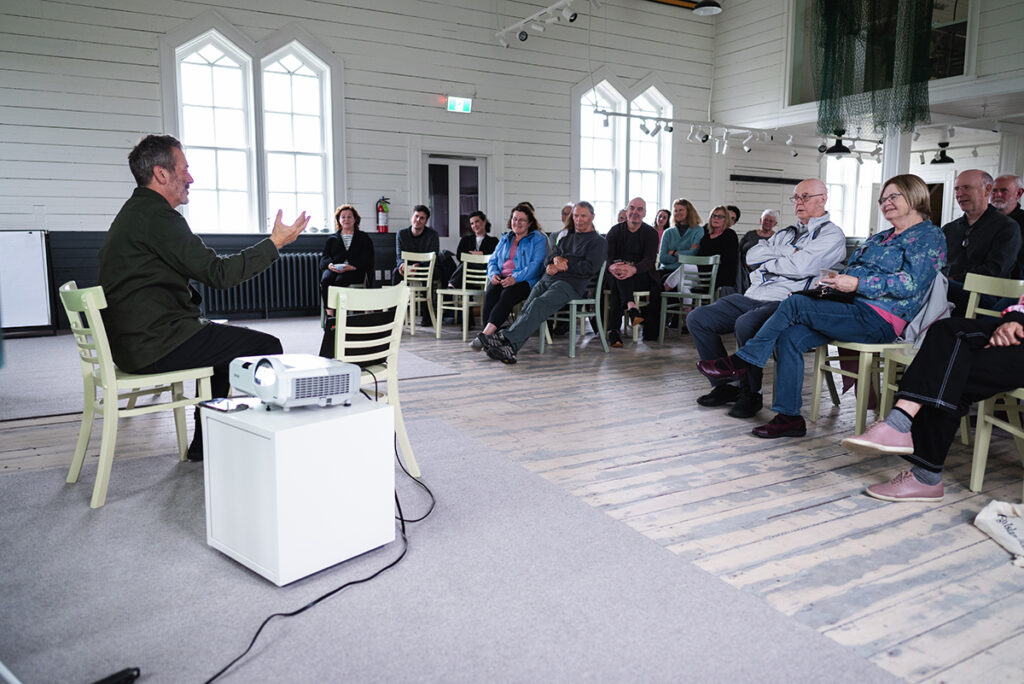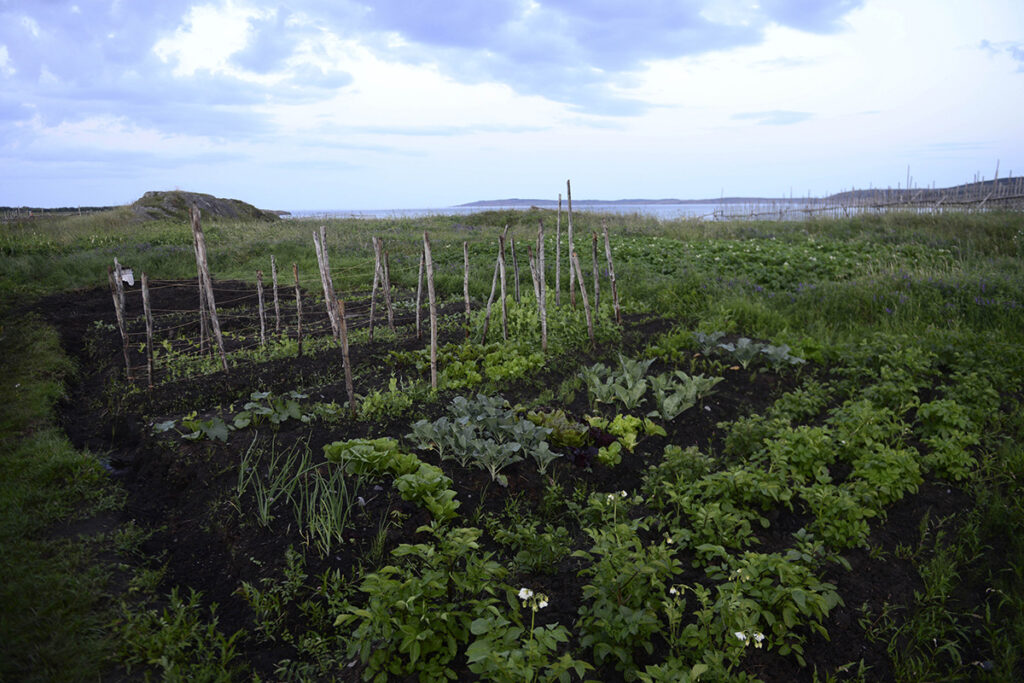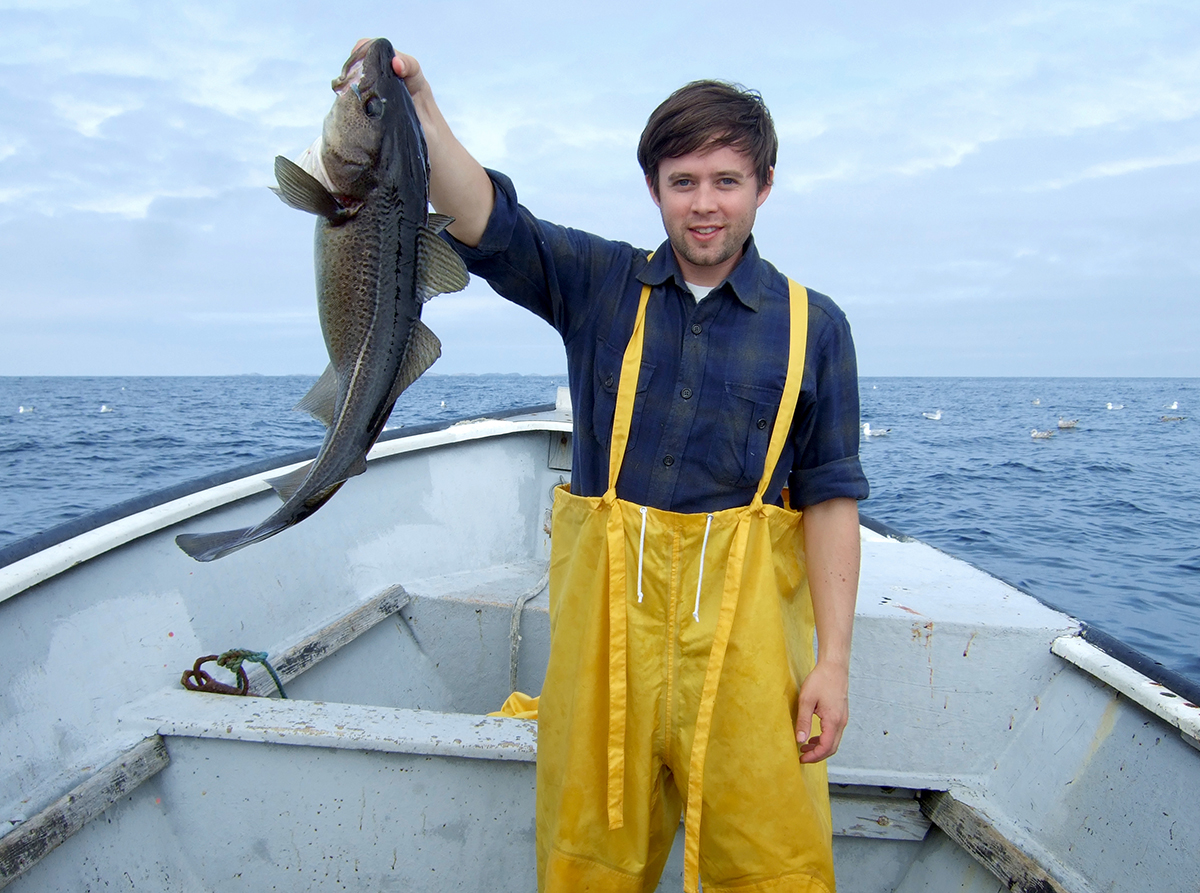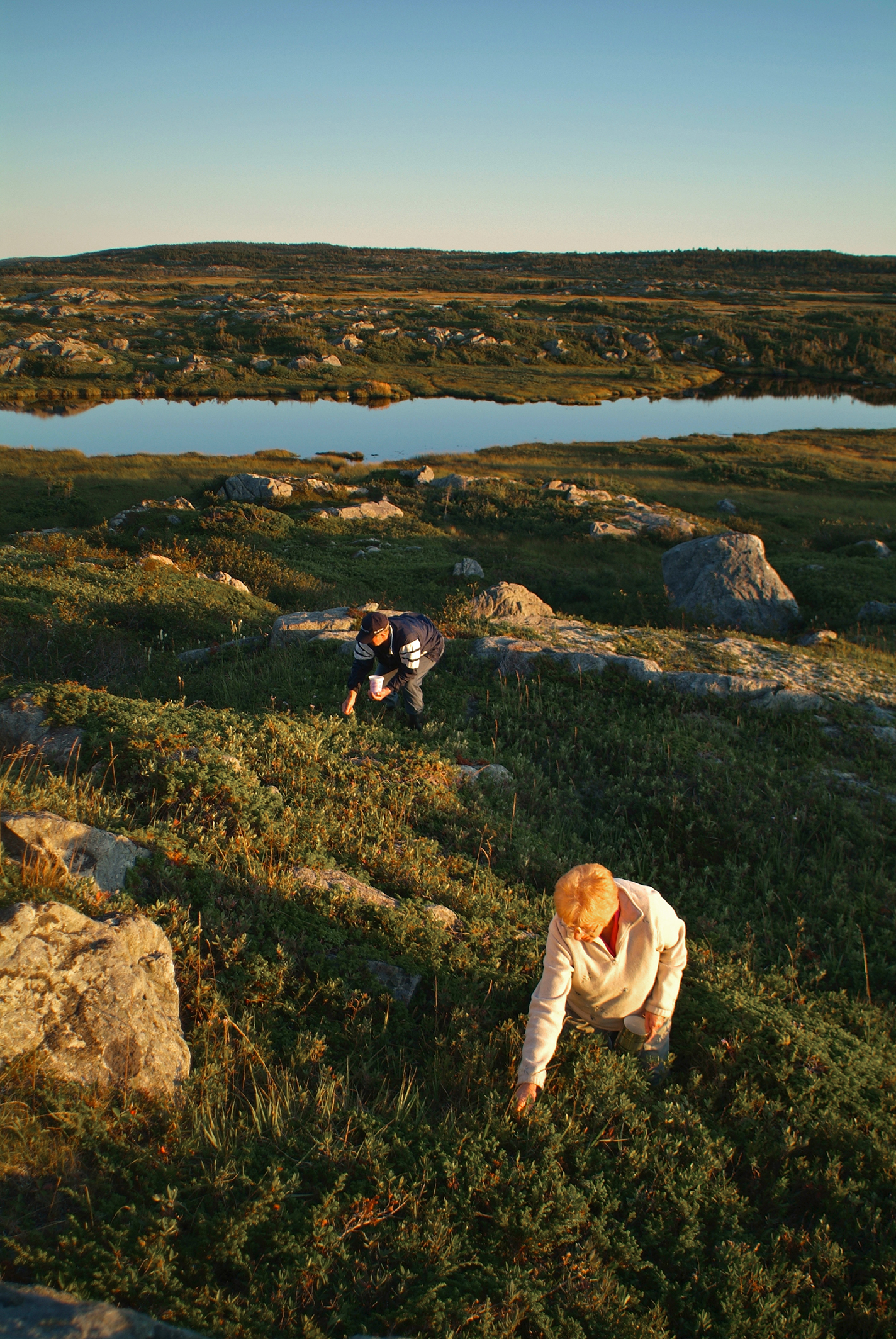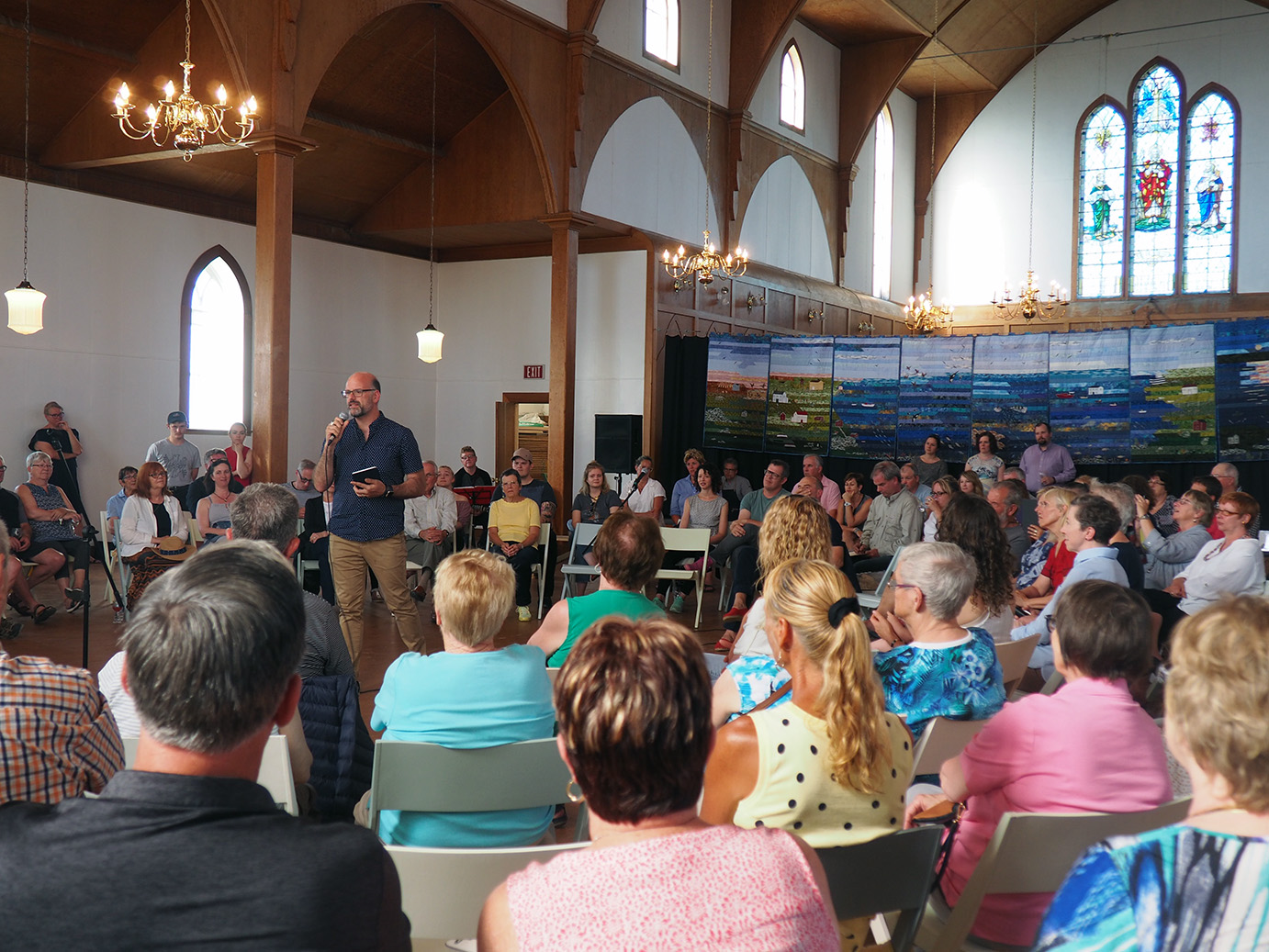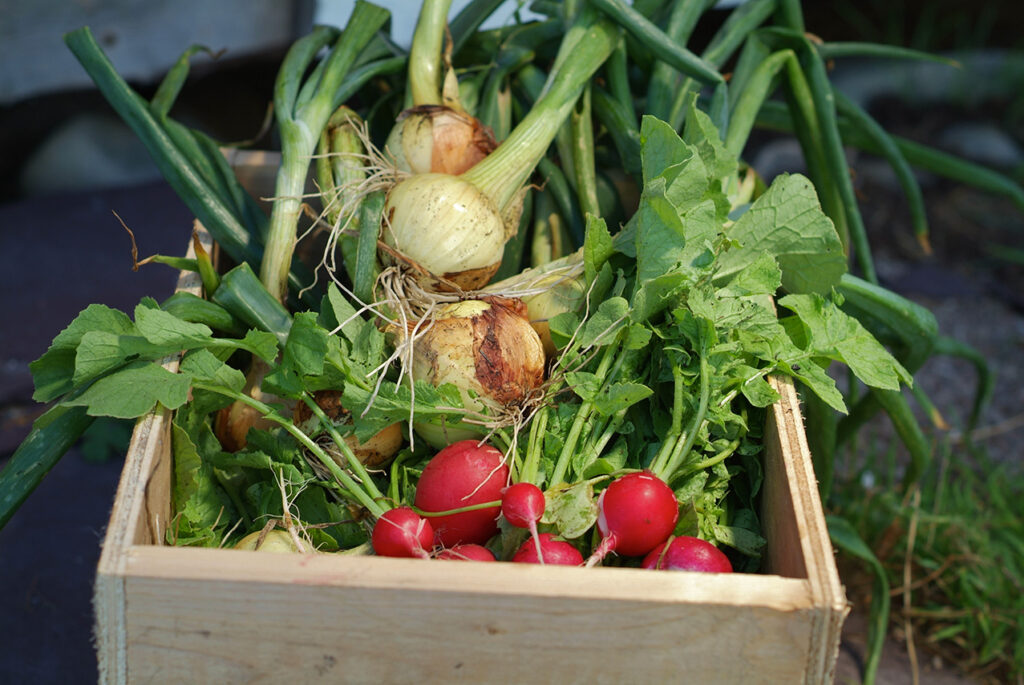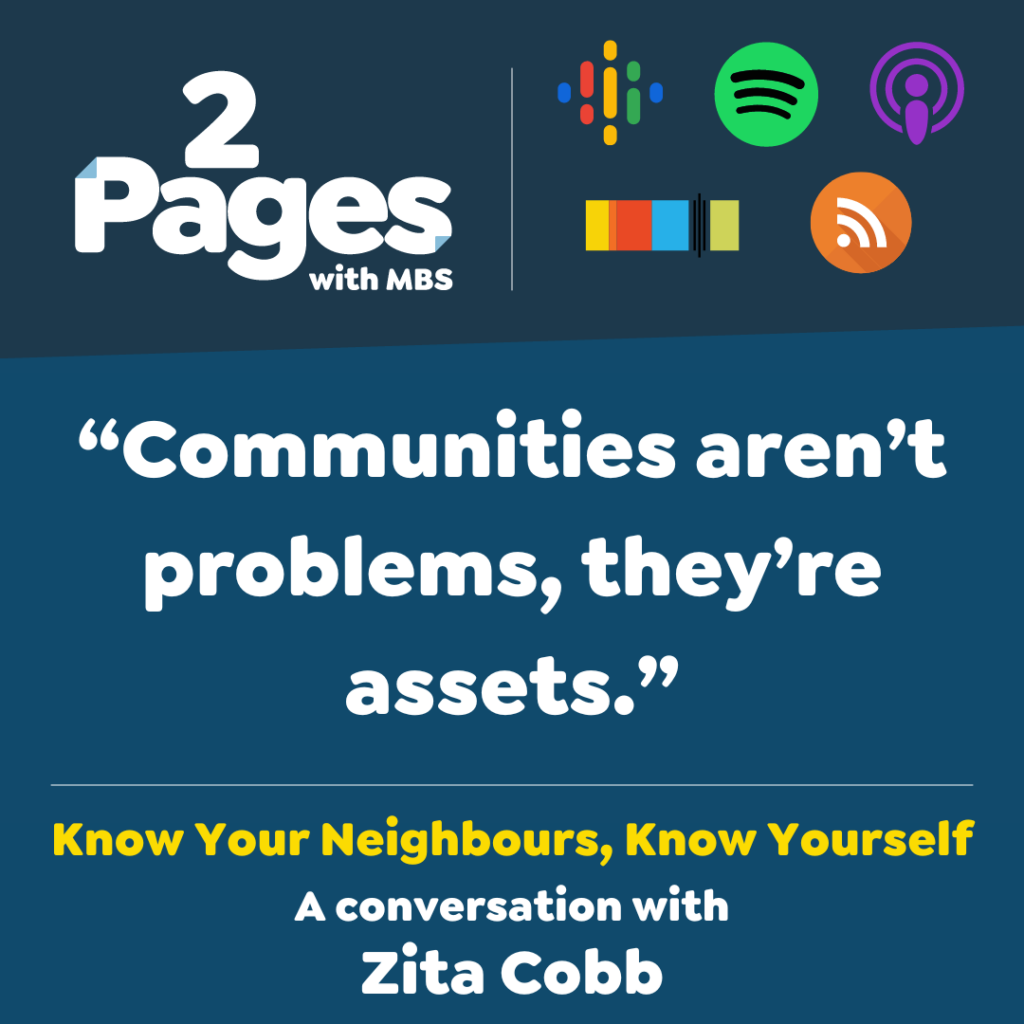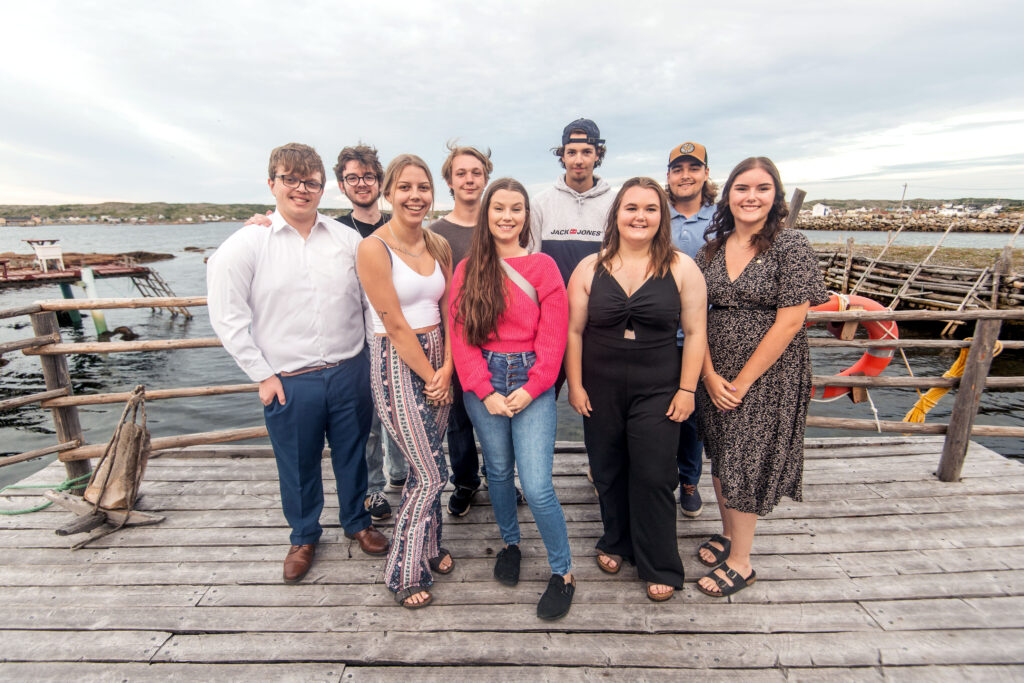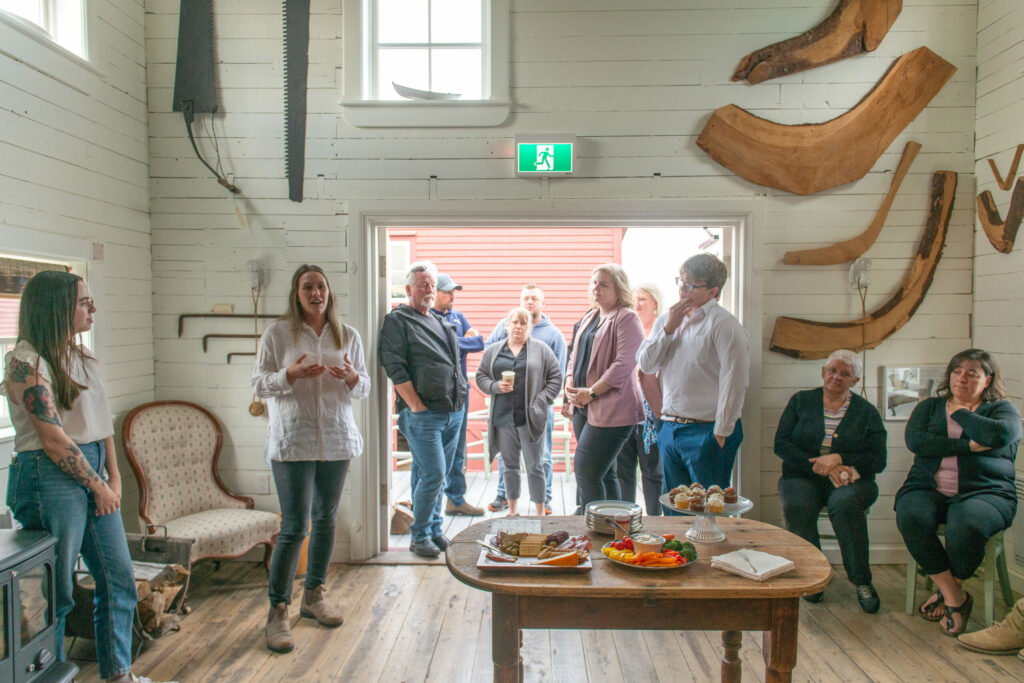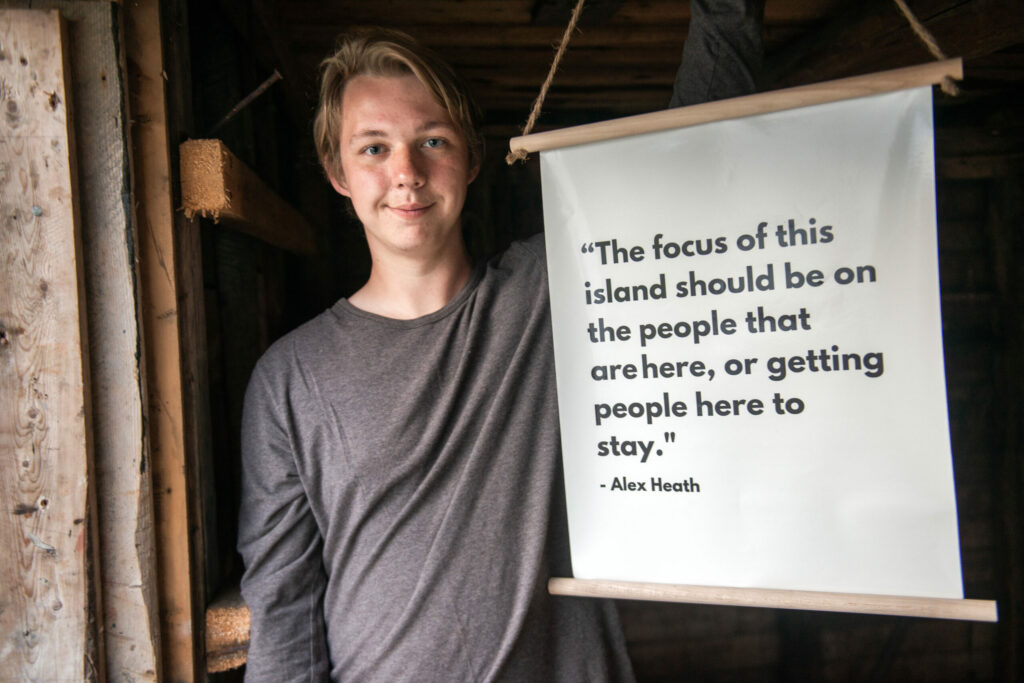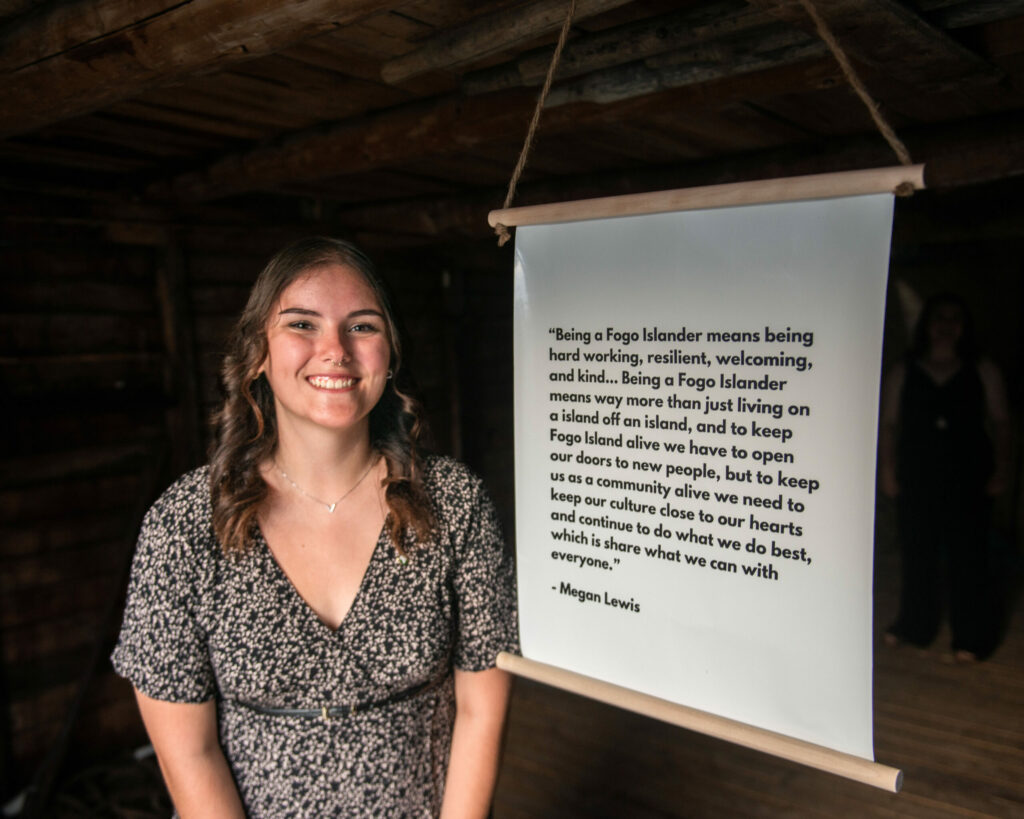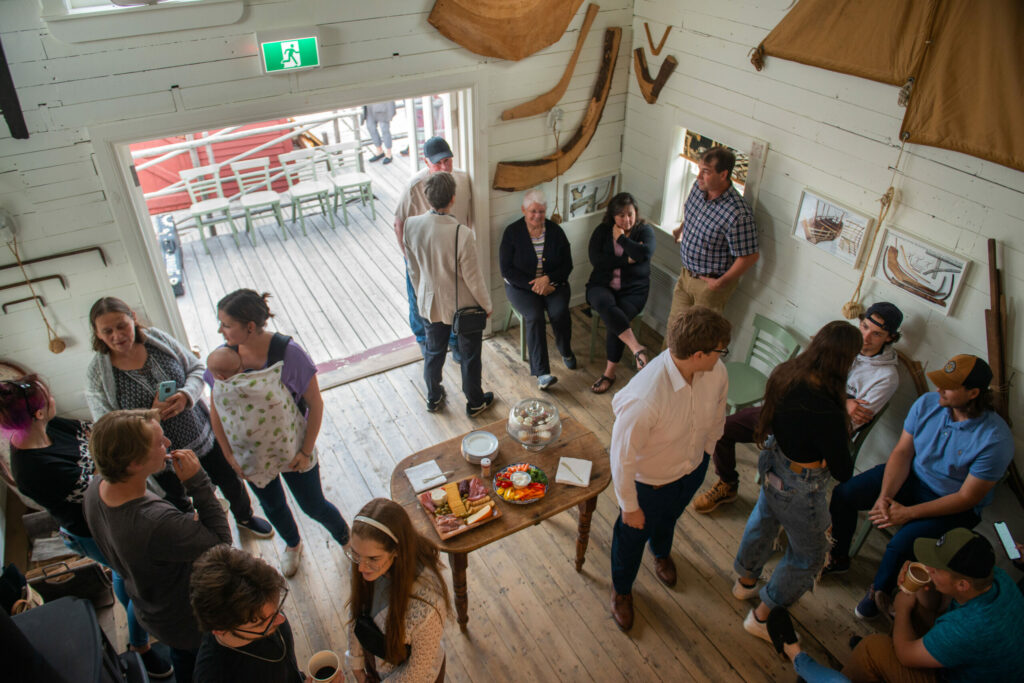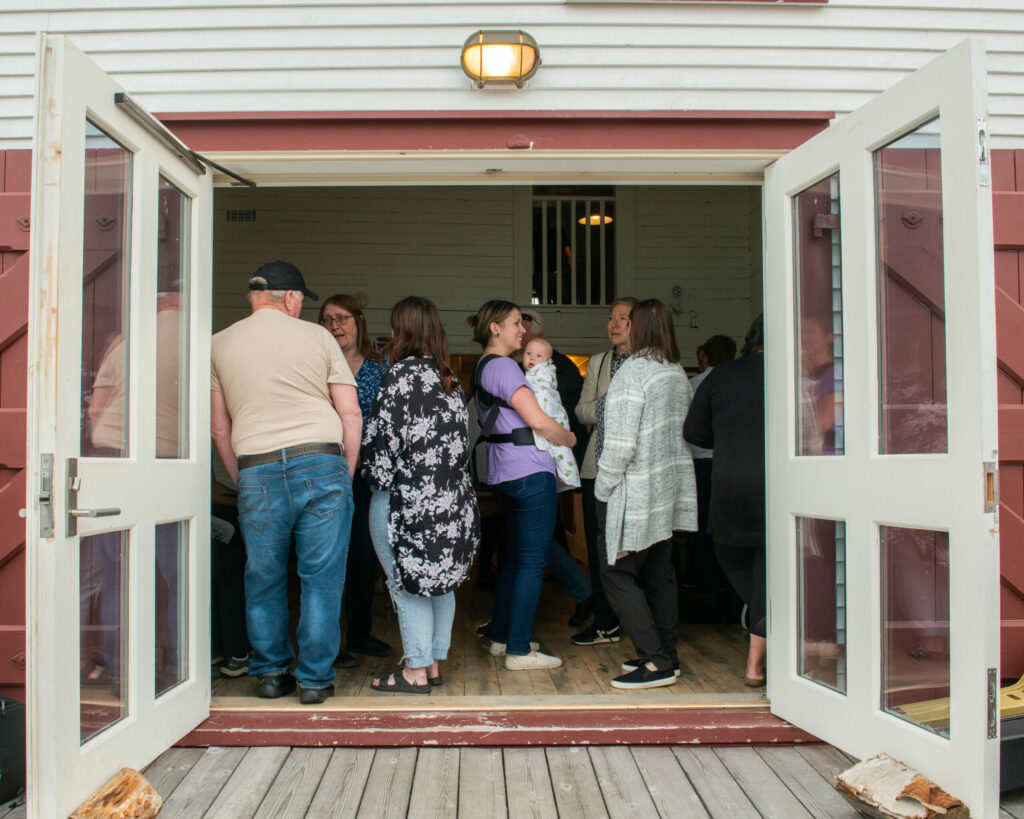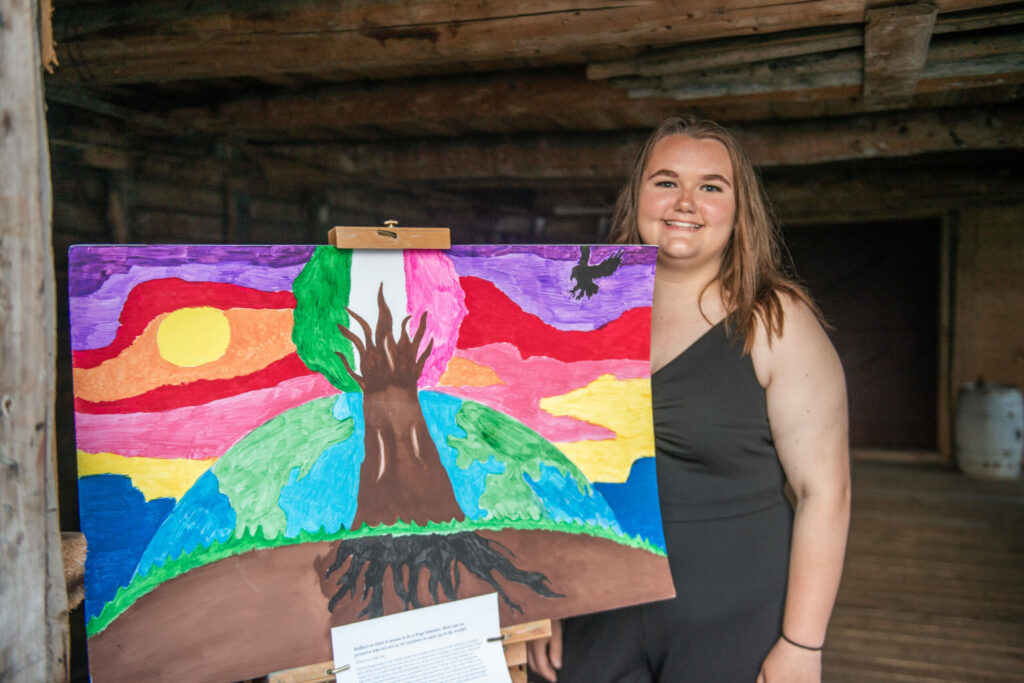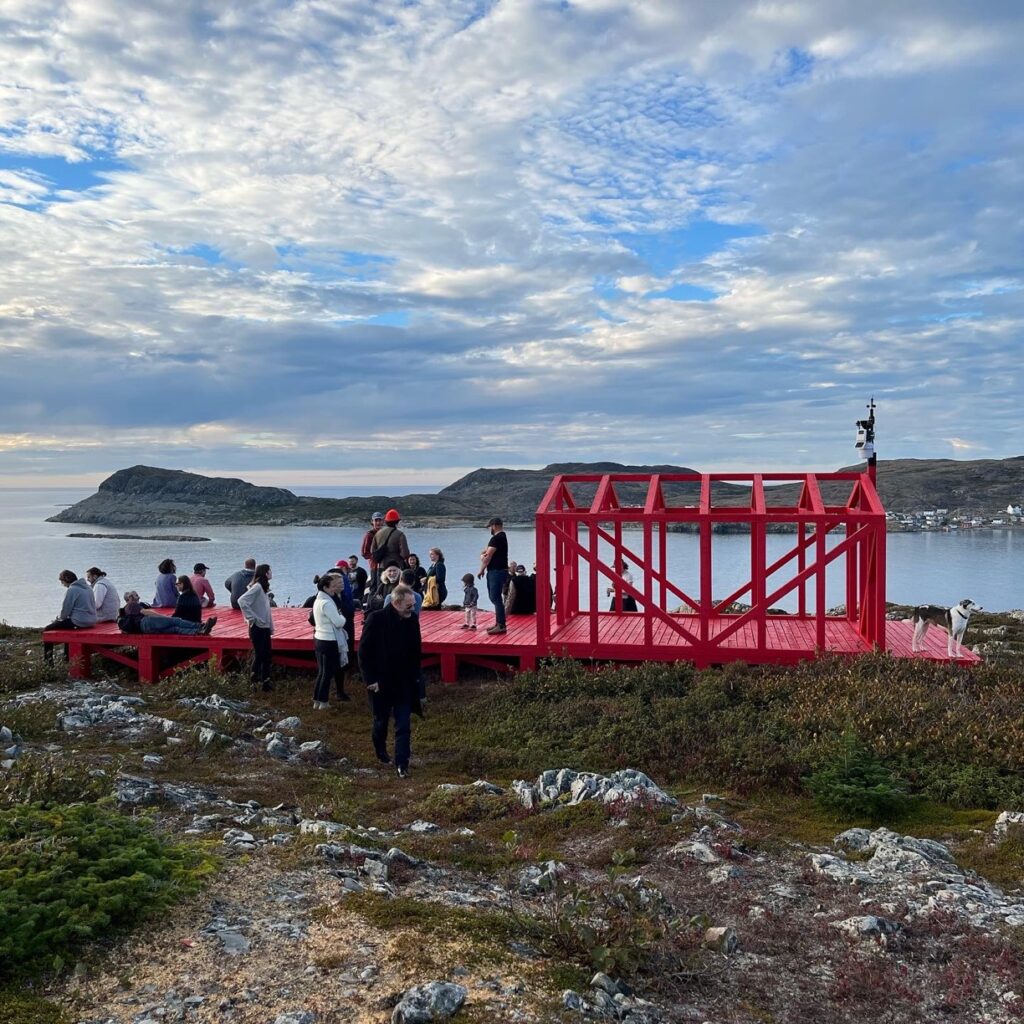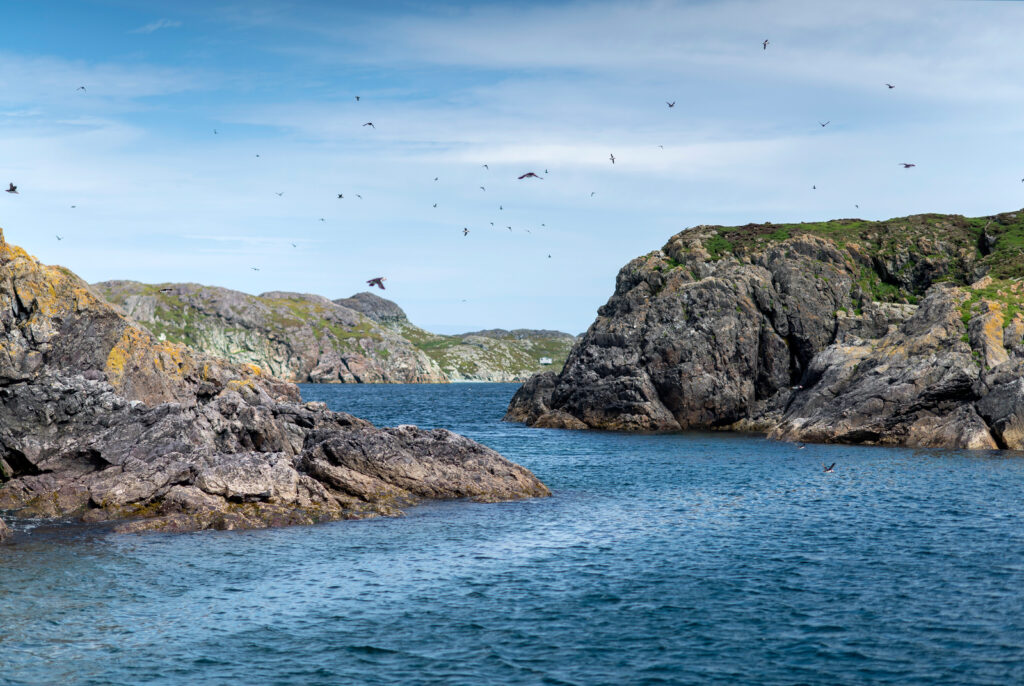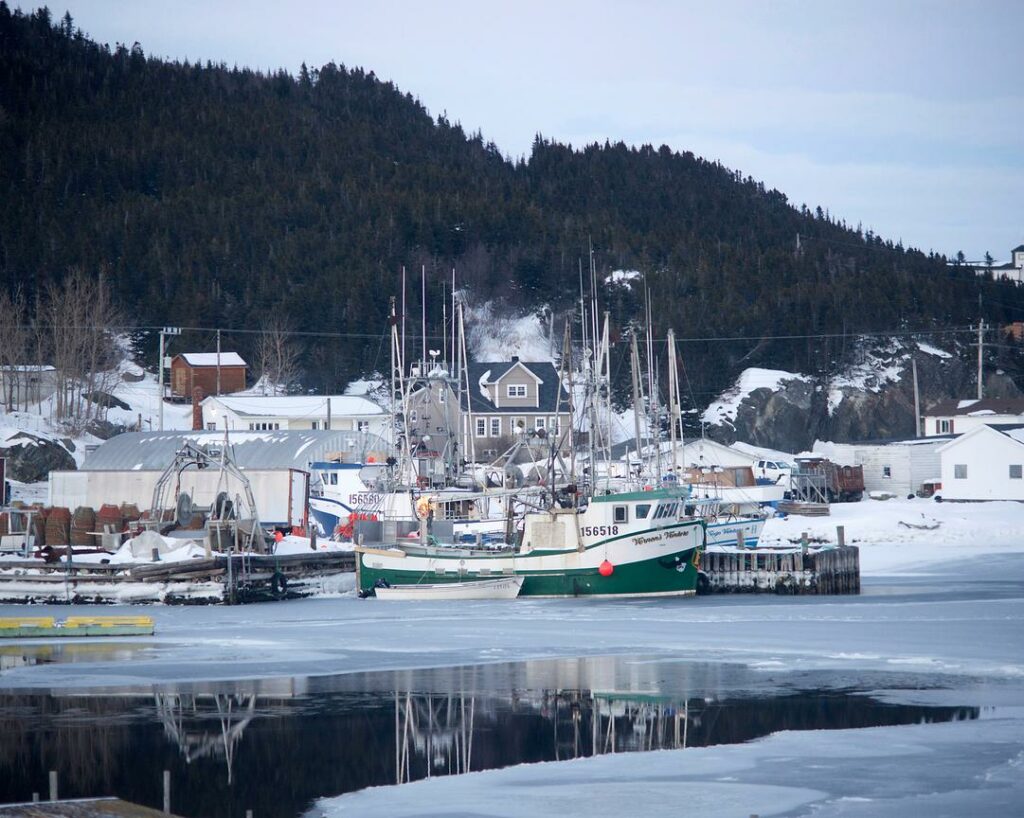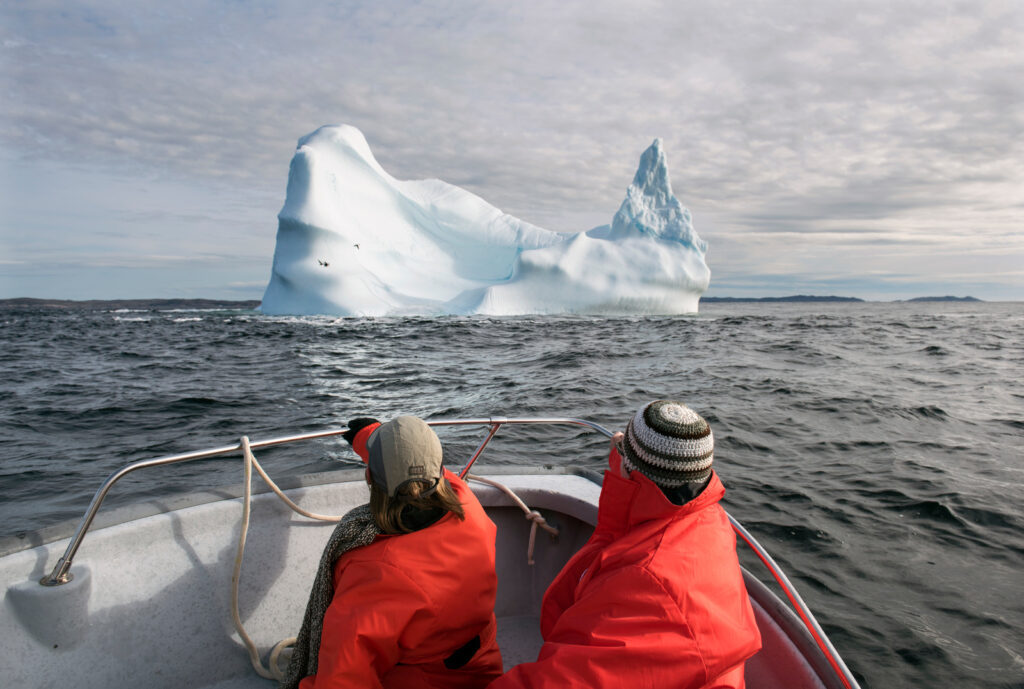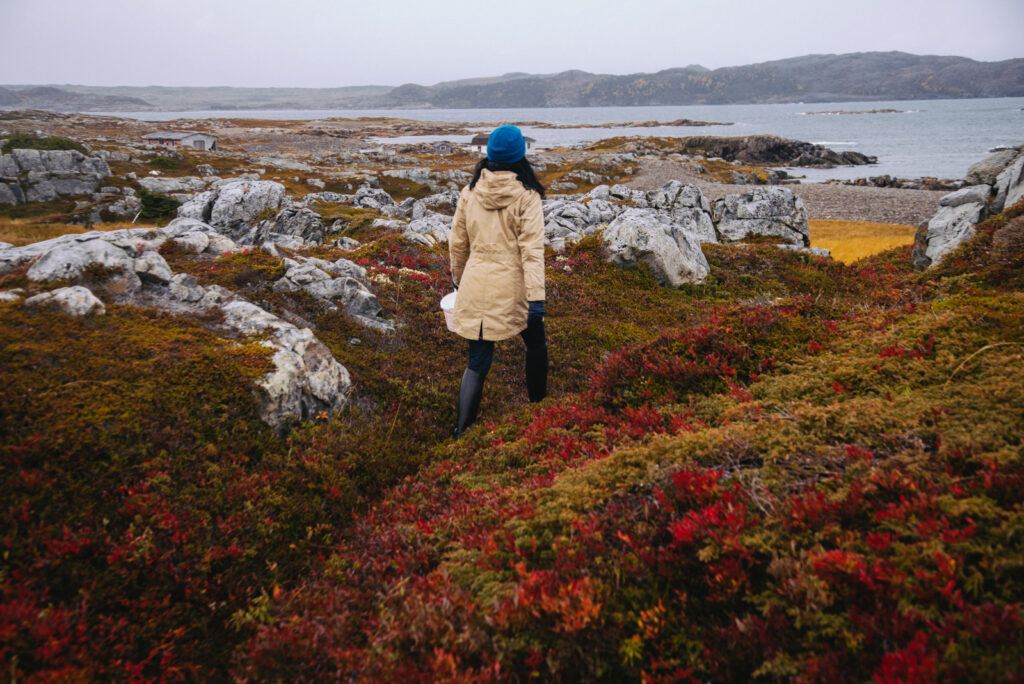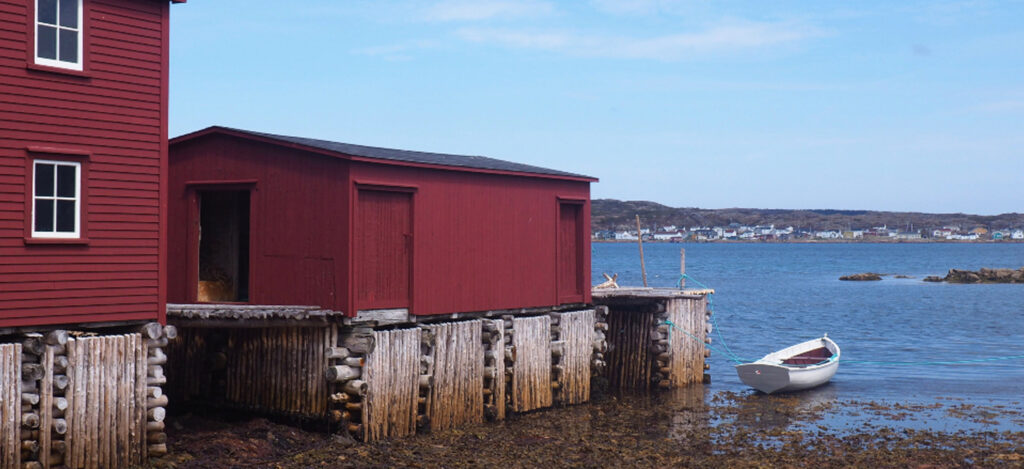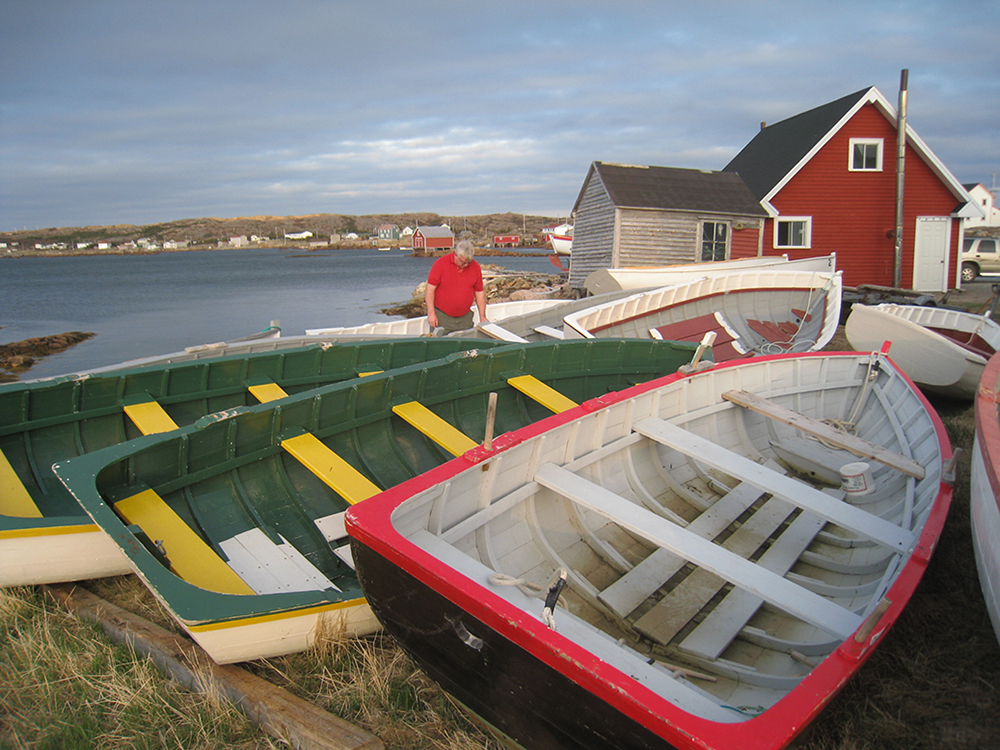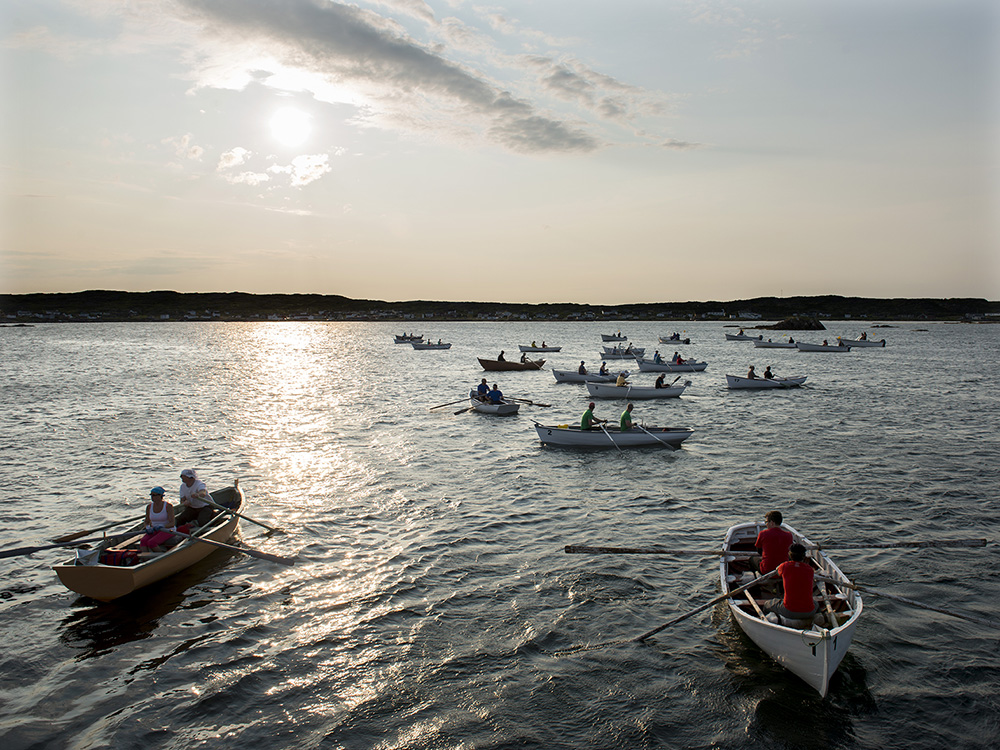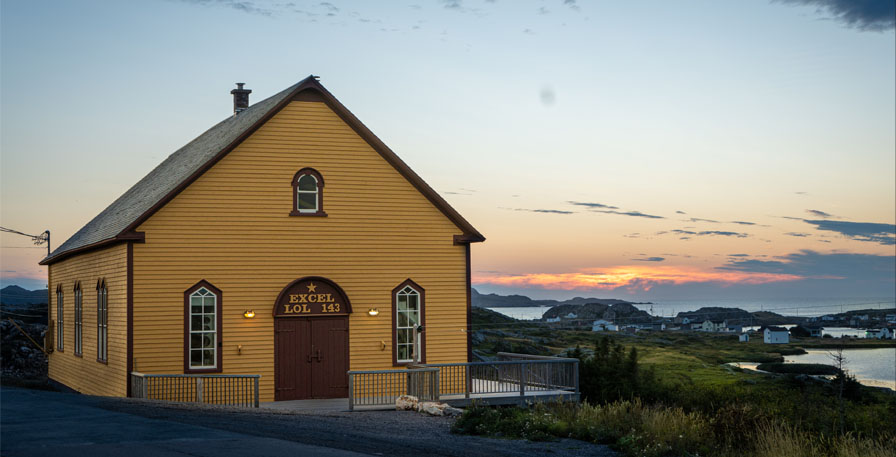
Over the past five years, Fogo Island has hosted a series of innovative community events exploring how to strengthen our economic future, including the first PLACE Dialogues (returning to Fogo Island this fall); discussions led by Glenn Blackwood and Chief Mi’sel Joe, and more recently events with NLOWE and the newly formed Fogo Island Chapter of the Gander and Area Chamber of Commerce. Fogo Island has become recognized as a place that welcomes creative thinking, new opportunities, and locally grown solutions.
Building on this momentum, Shorefast is establishing a Community Business Hub – a dedicated space to host and activate the economic potential of Fogo Island.
The Community Business Hub will be a space to connect, learn and share, deepening relationships on Fogo Island and beyond, enabling community businesses and organizations working in partnership to discover meaningful business development opportunities specific to Fogo Island’s local context.
As this project is in the early stages of development, we are sharing our ideas for potential activations as a starting point of discussion. We look forward to exploring ways we can work with Fogo Islanders to bring this space to life, building the vision together to make this space a vibrant community asset for change.
The Community Business Hub will be located in the Orange Lodge, JBA. Built in December 1908, Orange Lodge No. 143 created an essential space for cultural gatherings and events that contributed greatly to the community. In 2021, Shorefast restored the building with the vision of creating a space in support of community as it once was. We have secured funding to transform the Orange Lodge into a Community Business Hub to support local economic development activity and give space that enables innovative ideas to emerge and take shape.
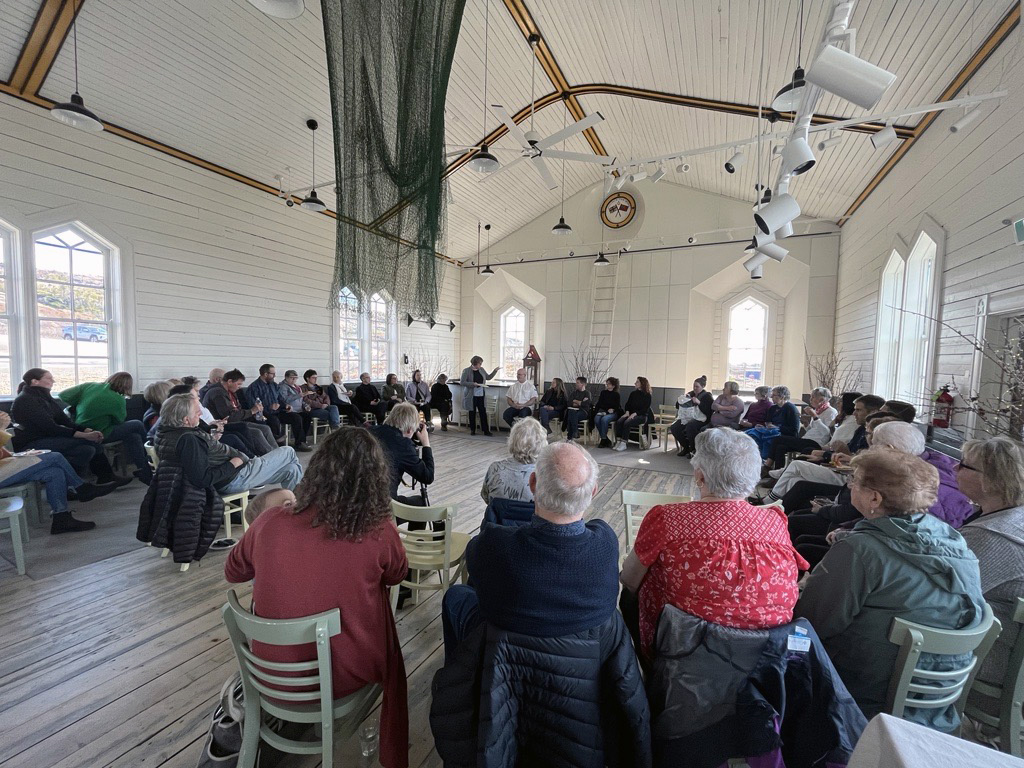
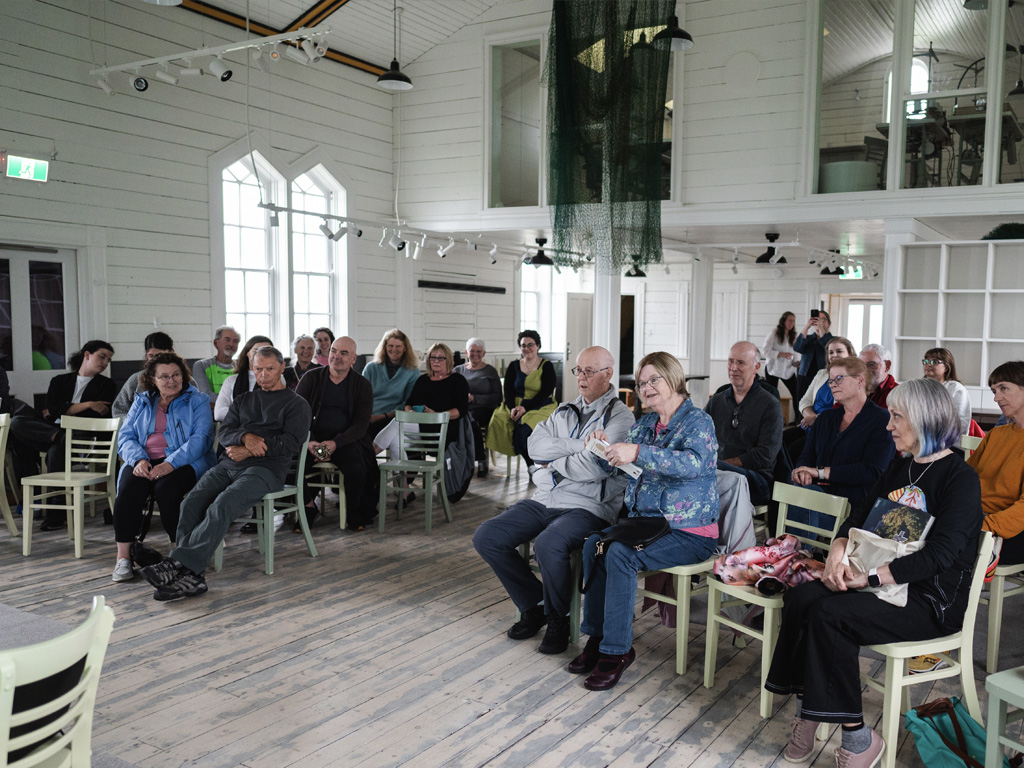
Use of the Space
We envision the Community Business Hub as a dynamic space for activating business and local economic growth. This center will not only nurture and amplify Fogo Island’s entrepreneurial spirit but also position our community as a leader in locally-driven economic strategies. By sharing our history and experience with visitors and collaborators, we hope to inspire and empower other communities working on their own community revitalization projects.
Ideas for activating the Community Business Hub:
Events:
- • Host speakers from multiple disciplines and information sessions on impacting community economy activation
- • Host on-island networking events (e.g. Fogo Island Chamber of Commerce, NLOWE, etc.)
- • Meeting space with technical equipment (e.g. projector, screens, microphones) available to local organizations
- • Broadcasting equipment to connect people meeting on-site with others from away
- • Space for visiting groups to become oriented on Fogo Island Economic Planning initiatives (e.g. art and cultural groups, visiting youth tours, other community leaders interested in place-based economic practice)
Programming:
- • Co-working space with strong internet for local entrepreneurs to work independently or collaboratively
- • Economic development programs to support decision-making:
- • Visual displays of key economic indicators and history of trade on Fogo Island
- • Community-focused facilitation sessions that use the community development approach to identify key local assets and development opportunities
- • Opportunity to integrate with entrepreneurship programs at schools and off-island networks through co-hosted learning sessions on business planning, local economy mapping
- • Integration with Shorefast Entrepreneur in Residency program; place for individuals to work from, learn alongside and contribute to programming
Resource Centre:
- • Resource library for books on place-based economic development practices; considering a book club to connect ideas learned from these books
- • Showcase various frameworks/models/case studies that have been created to highlight innovative work on Fogo Island in place-based economic development:
- • NFB
- • PLACE Model – Shorefast
- • Harvard Case Study
- • Pam Hall’s, Encyclopedia of Local Knowledge
- • Economic Nutrition
- • NFB
- • Home for resources related to community lending and information and guidance on how to secure funds and what funding sources are available
- • Have access to our team to connect local entrepreneurs looking for funds and off-island investors/lenders (e.g. CBDC, NLOWE, banks, government lending programs, etc.)
- • Home for resources related to business planning (e.g. templates for business startup, cash flow, etc.) to support entrepreneurs
To explore ways we can collaborate, share feedback, or learn more, please visit the Orange Lodge at the following times to chat with the Shorefast team working on this project: Alicia, Colleen, Kyle, and Susan.
Orange Lodge, 236 Main Road, Joe Batt’s Arm
Wednesday, July 3rd: 3pm-4pm
Wednesday, July 10th: 10am-11am
Thursday, July 11th: 6:30pm-7:30pm
Unable to visit us in person? Send us an email: hello@shorefast.org
Or give us a call: 709.658.7830
